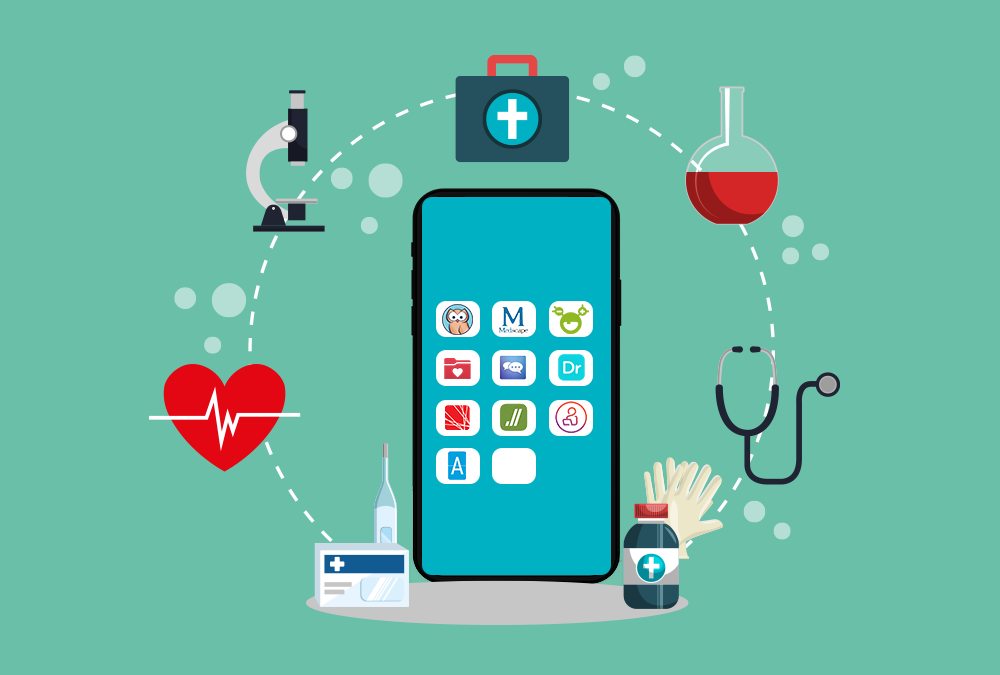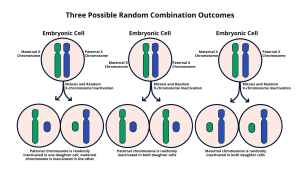Healthcare Apps: Revolutionizing Patient Support Systems
In today’s fast-paced world, healthcare apps are revolutionizing the way we monitor and manage our health. These innovative tools, including personalized healthcare apps, use advanced algorithms and artificial intelligence, such as reinforcement learning in healthcare, to provide tailored support for users. For instance, a cancer patient support app not only offers medication reminders but also delivers real-time assistance that adapts to each individual’s needs. With features such as AI health coaching and just-in-time adaptive intervention, these apps can effectively motivate users in their health journeys, ensuring they stick to their regimens and improve their outcomes. By seamlessly integrating technology into healthcare, these apps are becoming essential companions for patients seeking better health management.
In the realm of digital health solutions, applications designed for medical support are transforming patient experiences and care management. These digital platforms, often referred to as mobile health (mHealth) tools, employ cutting-edge technology to deliver real-time intervention and personalized assistance. From supporting those undergoing cancer treatments to offering behavioral interventions for various conditions, these apps exemplify the shift towards individualized care. Leveraging machine learning and adaptive algorithms, these technologies enable seamless user engagement, fostering a proactive approach to health management. With the capacity for real-time feedback and encouragement, these innovative solutions are reshaping the landscape of modern healthcare.
The Rise of Personalized Healthcare Apps
Personalized healthcare apps are revolutionizing the way patients manage their health, providing tailored support that adapts to individual needs. These applications leverage advanced algorithms to gather and analyze user data, ensuring that strategies are not only effective but also relevant. For instance, the application for stem-cell transplant patients being developed by Susan Murphy’s lab exemplifies this approach, as it customizes prompts and interventions based on the patient’s current circumstances, thereby encouraging adherence to medication schedules. By utilizing reinforcement learning, these apps can enhance user engagement over time, significantly improving health outcomes.
Moreover, the success of personalized healthcare apps hinges on their ability to learn from user interactions continually. As seen in the MiWaves project aimed at young adults with excessive cannabis use, the applications can modify their guidance based on recorded behaviors, ensuring that the support remains pertinent and motivating. This adaptability not only fosters a sense of empowerment among users but also aligns with the growing trend of self-managed health care, where technology bridges the gap between medical advice and personal accountability.
Cancer Patient Support Apps: Transforming Recovery
Cancer patients often face a daunting recovery journey, especially following procedures like stem cell transplants. Traditional support systems may fall short due to their inability to offer real-time, personalized care. However, innovations in healthcare technology have birthed dedicated cancer patient support apps that provide tailored assistance to both patients and caregivers. These applications serve to facilitate communication between patients, caregivers, and healthcare professionals, ensuring that no crucial information is overlooked during recovery, which is essential for adherence to complex medication regimens.
Figure exemplified by the collaborative project ADAPTS HCT showcases how these apps can leverage data to provide actionable insights at crucial moments. By synchronizing reminders and motivational messages between patients and caregivers, these applications not only alleviate the burden on caregivers but also foster a supportive environment that enhances recovery outcomes. Furthermore, incorporating game-like elements into the app experience can strengthen the bond between patients and caregivers, making the journey toward health more engaging and manageable.
Reinforcement Learning in Healthcare: A Game-Changer
Reinforcement learning is reshaping the landscape of healthcare technology by enabling applications to evolve based on user interactions. As highlighted in Susan Murphy’s research, this advanced computational method allows for the development of healthcare apps that respond intelligently to the needs of individuals. For example, an app can adjust its prompts and notifications to align with a patient’s past responses, effectively reducing the likelihood of reminders being ignored. This innovative use of machine learning not only personalizes the user experience but also increases the efficacy of health interventions.
The implications of reinforcement learning extend beyond mere behavior modification; it paves the way for smarter AI health coaching systems that can adapt in real-time. As these technologies become more sophisticated, patients can expect increasingly responsive healthcare solutions that support them throughout their recovery process. The ability to harness data dynamically will ultimately lead to better health outcomes, as interventions become more aligned with users’ day-to-day realities.
AI Health Coaching: Your Digital Wellness Companion
AI health coaching refers to the integration of artificial intelligence algorithms within health applications, providing users with personalized guidance and support. These digital coaches are designed to help individuals navigate their unique health journeys, particularly in stressful situations like recovering from serious illnesses or managing chronic conditions. As illustrated by the various applications developed at Susan Murphy’s lab, users can receive interventions and support tailored to their specific situations. This level of personalization fosters a greater sense of accountability and motivation, critical components in health management.
The technology behind AI health coaching has the potential to transform patient care by ensuring that support is not just timely but also contextually relevant. For instance, a health coach app could remind a user to take their medication based on their daily routines or when they are most likely to forget. By utilizing real-time data and adaptive learning techniques, these applications will empower individuals to take control of their health in ways that are tailored to their lifestyles, ultimately promoting healthier behaviors.
Just-in-Time Adaptive Interventions in Health Management
Just-in-time adaptive interventions (JITAIs) represent an innovative approach to delivering real-time support in health management. By recognizing an individual’s changing needs and contexts, JITAIs such as those being developed in Murphy’s lab can deliver interventions precisely when they are most needed. This approach leverages data-driven insights to adapt health recommendations, ensuring that users receive relevant guidance in times of vulnerability or uncertainty.
The effectiveness of JITAIs is particularly evident in high-stakes health situations, such as those faced by cancer patients or individuals undergoing rehabilitation. By ensuring that the right support is available at crucial moments, these interventions facilitate better adherence to treatment protocols and improve overall recovery outcomes. Furthermore, integrating social support into these interventions enhances their impact, as patients feel more connected to both their caregivers and their health goals.
The Future of Healthcare Apps: Beyond Basic Tracking
The landscape of healthcare apps is evolving, moving beyond basic tracking functionalities to become sophisticated tools that provide personalized support and enhance user engagement. With the increasing integration of AI and machine learning, these apps are not only tracking health metrics but are also actively guiding users to make healthier choices and adhere to treatment plans. This represents a significant shift from traditional health apps, which often failed to address individual needs adequately.
As the field of personalized healthcare continues to grow, we can anticipate a future where apps will increasingly incorporate advanced algorithms that learn from user data over time. This progression will lead to applications that provide increasingly accurate and timely recommendations, ensuring that users feel supported in their health management journeys. The rise of such adaptive, user-centered health apps promises a more profound transformation in how we approach health and wellness.
Harnessing Technology for Caregiver Support
Caregivers play a vital role in managing the health of patients, especially in complicated cases like cancer treatment. Acknowledging their importance, new technologies are emerging to deliver targeted support to caregivers. By utilizing apps that help manage care routines, medication reminders, and even offer social support, caregivers can find a manageable balance between their responsibilities and self-care. These apps recognize the emotional and practical demands caregivers face, providing tools to streamline their efforts.
Moreover, health management applications can facilitate communication between caregivers and healthcare professionals. By integrating features that allow caregivers to report on patient progress or concerns directly, these apps create a feedback loop that enhances the care process. International studies show that when caregivers feel supported, both their well-being and that of the patient significantly improve, demonstrating the need for comprehensive support systems within the healthcare landscape.
Innovations in Mobile Health: Enhancing Patient Engagement
Mobile health applications are at the forefront of fostering patient engagement by offering tools that empower individuals to take charge of their health. The ability to access medical advice, track progress, and receive tailored reminders has transformed how patients interact with their health care. Innovations in this space focus on user-friendly interfaces and interactive features that enhance the overall experience, making managing health more intuitive and fulfilling.
From gamifying health through challenges to allowing personalized goal-setting, these applications are harnessing technology to promote active participation in health management. Patients are more likely to adhere to treatment protocols when they feel a sense of ownership over their health journey. Such innovations not only improve individual health outcomes but also contribute to a broader culture of wellness, influencing how communities perceive and prioritize health management.
The Intersection of Behavioral Science and Technology in Healthcare
The integration of behavioral science principles into healthcare technology is paving the way for more effective interventions. By understanding the psychological factors that influence health behaviors, developers can create applications that not only track health metrics but also motivate and engage users in meaningful ways. For instance, the persuasive design of an app could encourage patients to stick to their medication regimen by providing rewards or social recognition, leveraging social networks to enhance accountability.
Behavioral insights also guide the development of features that resonate with users on a personal level. Customization becomes crucial, allowing users to receive reminders and support tailored to their preferences and routines. As research continues to illuminate the nuances of health behavior, such intelligent design will become increasingly prevalent, fostering a more human-centered approach to digital health solutions.
Frequently Asked Questions
What are personalized healthcare apps and how do they improve patient adherence?
Personalized healthcare apps are innovative tools designed to tailor health guidance and support to individual patients’ needs. By utilizing reinforcement learning algorithms, these apps analyze user data and adapt in real-time, helping patients adhere to medication regimens and overall health goals. This customization enhances user engagement and promotes more effective health management.
How do cancer patient support apps utilize AI in their design?
Cancer patient support apps leverage AI technology, especially through reinforcement learning, to provide personalized interventions. These apps learn from user interactions, optimizing prompts and reminders based on individual needs to improve medication adherence and enhance emotional support during recovery.
What is just-in-time adaptive intervention in healthcare apps?
Just-in-time adaptive intervention (JITAI) is a method used in healthcare apps that delivers timely and personalized support based on real-time data. This approach ensures interventions are relevant and context-specific, addressing the evolving needs of users, particularly patients who may require immediate assistance or motivation.
What role does AI health coaching play in healthcare applications?
AI health coaching in healthcare applications provides users with tailored guidance and support based on their health behaviors and data. These apps employ algorithms to continuously adapt coaching strategies, encouraging users to stay on track with their health goals and foster long-lasting behavioral changes.
How does reinforcement learning enhance healthcare app performance?
Reinforcement learning enhances healthcare app performance by allowing the app to ‘learn’ from user interactions over time. This adaptive learning process enables the app to adjust its recommendations and notifications, ensuring they are timely and effective, which ultimately leads to better health outcomes for users.
What features can users expect from advanced healthcare apps for chronic conditions?
Advanced healthcare apps for chronic conditions typically feature personalized health tracking, real-time feedback, medication reminders, and social support components. These features are designed to enhance user engagement and facilitate better management of the condition, often utilizing algorithms that tailor the app’s functionality to the user’s specific needs.
| Key Point | Details |
|---|---|
| Personal Healthcare Coach | Apps act like personal coaches by using algorithms for personalized care. |
| Cancer Patient Support | Apps help stem cell transplant patients manage medications and side effects. |
| Algorithm Based Personalization | Using reinforcement learning algorithms to provide customized prompts and support. |
| Real-Time Intervention | Apps offer ‘just-in-time adaptive interventions’ based on changing patient needs. |
| Collaboration for Development | Murphy lab works with healthcare professionals to create user-friendly apps. |
| Focus on Caregivers | Apps engage family caregivers in the medication management process. |
| Engagement Techniques | The app includes games to improve patient-caregiver relationship and adherence. |
| Example Applications | Projects include MiWaves for cannabis users and Oralytics for oral hygiene. |
Summary
Healthcare apps are changing the landscape of medical support by acting as digital coaches tailored to individual needs. These applications, developed by researchers like Susan Murphy, utilize advanced algorithms to provide personalized guidance for patients, particularly those dealing with challenging conditions such as cancer recovery. As these apps evolve, they promise to enhance patient adherence to treatment regimes, foster caregiver collaboration, and ultimately lead to improved health outcomes.



